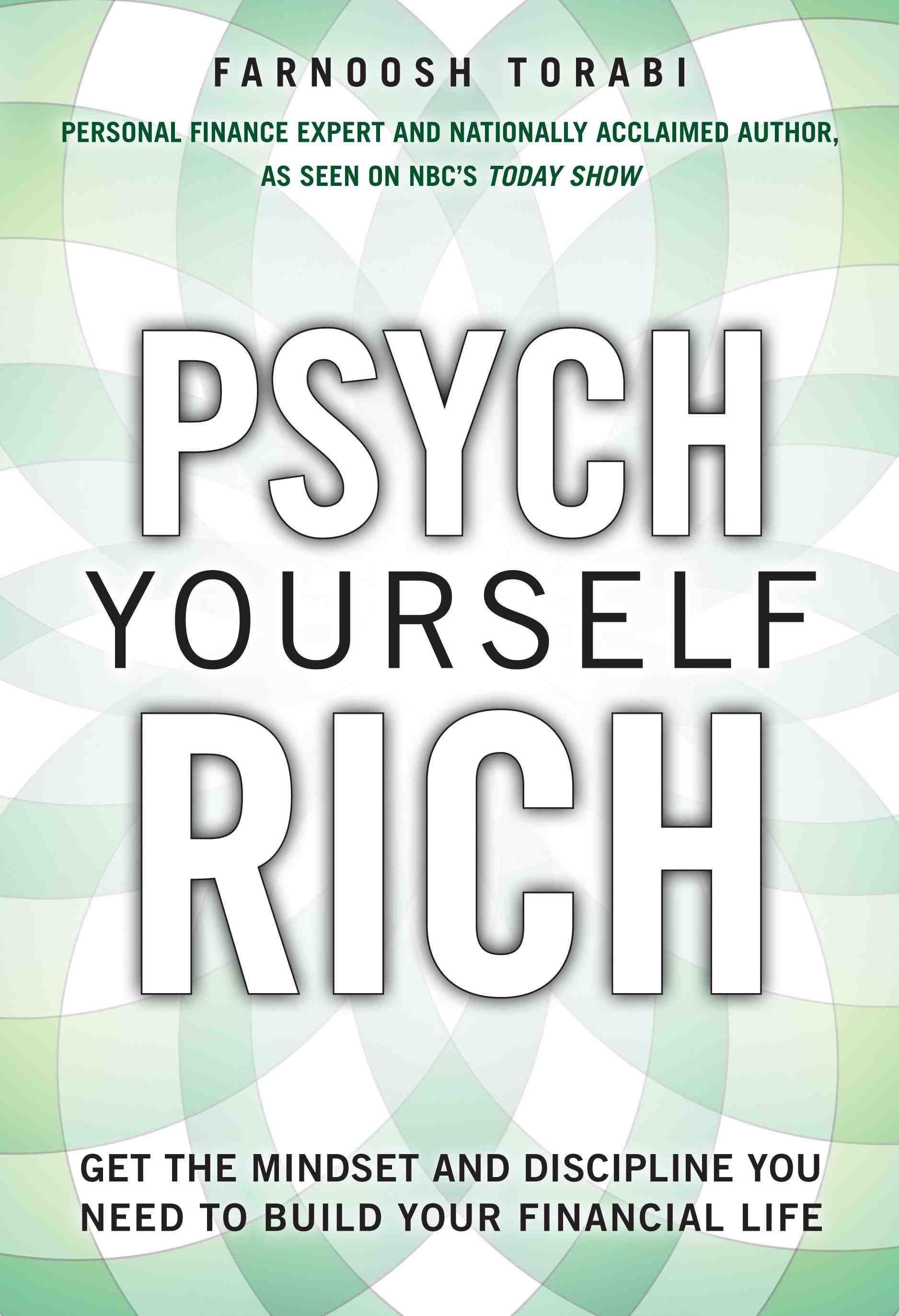

These days it's the rare American indeed who doesn't have money on the brain. Whether that is a good thing or a bad thing depends on your mindset. Nationally acclaimed author and frequent Today personal finance commentator Farnoosh Torabi has a great new book out on this very subject and was kind enough to share some key take-aways with us.
Farnoosh, what is the number one message that you want readers of Psych Yourself Rich to come away with?
Managing our money well and effectively boils down to mindset and behavior. Unless we have a firm sense of direction and can commit to an outlook on our finances that is both empowering and solutions-driven, our money bears no meaning. This book shows you how to make the journey.
Which is your favorite chapter of Psych Yourself Rich and why?
My favorite chapter is probably the final one entitled "Embrace the Entrepreneurial Spirit." Here we take a look at what I believe to be the key to financial freedom -- controlling your own revenue streams. So while not everyone desires to be an entrepreneur, we can all learn from the spirit and action of entrepreneurs and apply them to our daily lives. For example, when we choose to take charge of at least some of our income (aside from the salary from a full-time post), whether it's through a part-time weekend job or a freelance assignment on the side or selling crafts at an art fair every month, it's no coincidence that we have a more positive and secure grasp on our finances. Beyond taking control of some of your income, embracing the entrepreneurial spirit also means thinking outside the box, willing to take (smart) risks and being a forward-thinker, all habits that can lead to more financial security.
What, if any, are the key psychological differences you see between the way men and women approach their finances?
Women -- particularly moms -- invariably put others' needs before theirs. For example, they'll spend their disposable income towards the kids' wants before tucking some of that money away in the rainy day fund. I just worked on a budget for a single mom of three who struggles with that so-called "mommy guilt" and sacrifices her own financial security to ensure her kids get to play the sports that they want ($$) and attend all their friends' birthday parties ($$). Men aren't perfect either. They're overconfident to a fault sometimes, according to a famous study on gender investing by two professors at the University of Berkeley. In it they concluded that women's portfolios -- which by and large maintained a buy-and-hold strategy -- gained 1.4 per cent more than men's portfolios, in which they had made heavy, active trades.
What's the most common question you've been getting so far as you've talked about Psych Yourself Rich?
I've been getting a few of these: "So I just psych myself rich? I can think about being rich and it'll happen?" My answer to that is, "If only it were that simple." You wouldn't need a 225-page book about it! But, of course, that is the title I have chosen, so people will naturally ask this question and I encourage it because it allows me to explain the message. The title is meant to emphasize that your mind is the thing. Your ability to make the best possible decisions in your financial life begins with a proper mindset that includes an honest and practical understanding of the term rich, an ability to relate to your finances on a more personal and intimate level, being in control and an advocate for your money, embracing risk, clearing the emotional clutter that stands in the way of you and your goals and thinking entrepreneurially. Every chapter in the book is first and foremost a brain exercise, but of course if you just continue to sit on your couch after finishing the book, life doesn't necessarily get better.
Do you think the current economic environment will have a lasting impact on how people relate to their finances?
I am deeply hopeful that it will have a long-term impact. I think we've seen and lived through enough of this economy to turn what started as our knee-jerk reaction to save and rethink our priorities into a longer-term way of life. Our national personal savings rate is close to 6%, which is really remarkable considering it was at 0% at the start of the decade. I think we all know by now how destructive it can be to depend on plastic, to not have a savings nest egg and no back-up plan when you lose your job. What's more is that we've hopefully opened up as a nation when it comes to discussing money. There's still a lot more work to be done in this department, but some of us have bonded over our financial problems and perhaps feel more comfortable turning to each other for help. That's a significant improvement and one that I hope will stick.
To keep up with the latest on Farnoosh and her inspiring work, you can follow her on Twitter at @Farnoosh and visit her website at www.Farnoosh.tv.
---------
Want more financial love? You can follow Manisha on Twitter at @ManishaThakor and sign up for her email updates here. Starting in late Fall 2010, Manisha will teach an innovative online course on "Financial Literacy 101" for women through www.Sympoz.com. Manisha Thakor, personal finance expert for women, can be reached via her website, www.ManishaThakor.com.